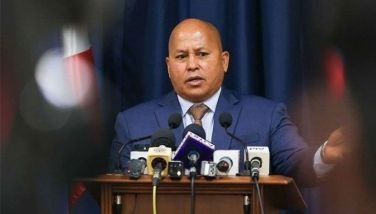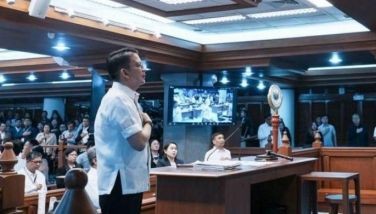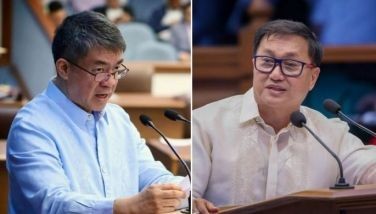Ex-senator dies at 99
April 2, 2005 | 12:00am
Former senator and Cavite congressman Justiniano Montano died last Thursday at the age of 99, after retirement from a colorful political career that spanned eight presidents.
Montano was known to be one of the country’s last great statesmen. He served in the Senate from 1949 to 1953. He served in the House of Representatives from 1935 to 1949 and again from 1953 to 1972.
He was also a linguist, having had a great command of five languages. He used this talent in his capacity as a permanent representative of the Philippine Congress in the Inter-Parliamentary Union (IPU) conferences, where he was also a permanent officer.
When the parliamentary conference was held in Brasilia, Montano was asked to preside over the conference — the first time ever for a Filipino. He used his command of French to address the IPU in that language when its conference was held in France.
He was master parliamentarian, a title given to only a handful of people who passed the bar exam with over 100 percentile marks.
Montano was also recognized for his social reforms in the country. He authored many bills, including the first minimum wage law, the first agrarian reform program, the Social Security System and land tenure laws.
His efforts to expose the misuse of government funds earned him an editorial and a cover page of the Free Press magazine.
During his days in Congress, Montano was known to be a hardworking lawmaker with a 100-percent attendance record. He often lost his voice after House sessions, and authored so many bills that he was referred to as "The Montano Machine."
Caviteños fondly called Montano "Tata" or father, many of them saying no other politician has done as much as he did for Cavite. Montano distributed large tracts of land to the poor, employed many of his constituents in the government, and worked to have the municipality of Tagaytay upgraded into a city.
Montano was known to be one of the country’s last great statesmen. He served in the Senate from 1949 to 1953. He served in the House of Representatives from 1935 to 1949 and again from 1953 to 1972.
He was also a linguist, having had a great command of five languages. He used this talent in his capacity as a permanent representative of the Philippine Congress in the Inter-Parliamentary Union (IPU) conferences, where he was also a permanent officer.
When the parliamentary conference was held in Brasilia, Montano was asked to preside over the conference — the first time ever for a Filipino. He used his command of French to address the IPU in that language when its conference was held in France.
He was master parliamentarian, a title given to only a handful of people who passed the bar exam with over 100 percentile marks.
Montano was also recognized for his social reforms in the country. He authored many bills, including the first minimum wage law, the first agrarian reform program, the Social Security System and land tenure laws.
His efforts to expose the misuse of government funds earned him an editorial and a cover page of the Free Press magazine.
During his days in Congress, Montano was known to be a hardworking lawmaker with a 100-percent attendance record. He often lost his voice after House sessions, and authored so many bills that he was referred to as "The Montano Machine."
Caviteños fondly called Montano "Tata" or father, many of them saying no other politician has done as much as he did for Cavite. Montano distributed large tracts of land to the poor, employed many of his constituents in the government, and worked to have the municipality of Tagaytay upgraded into a city.
BrandSpace Articles
<
>
- Latest
- Trending
Trending
Latest
Trending
Latest
Recommended































